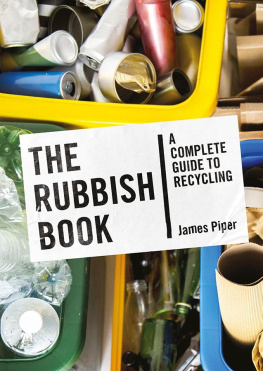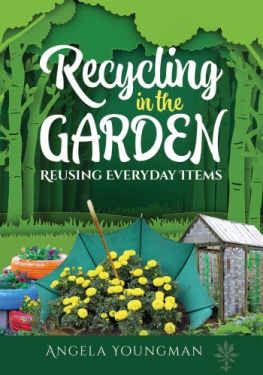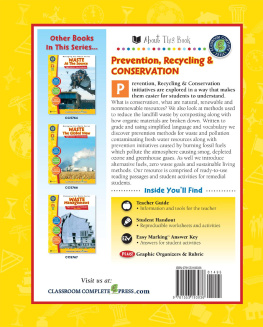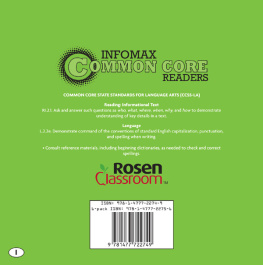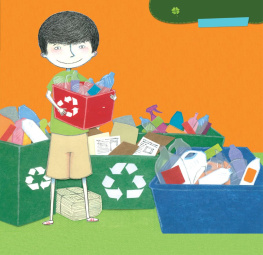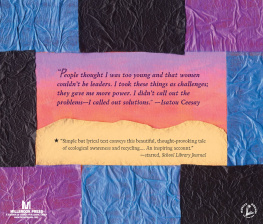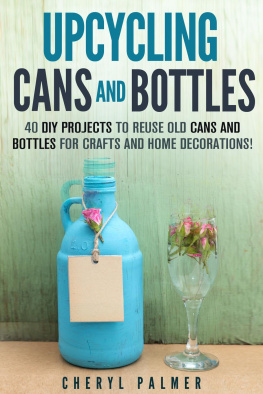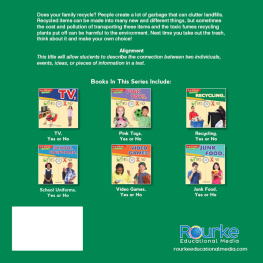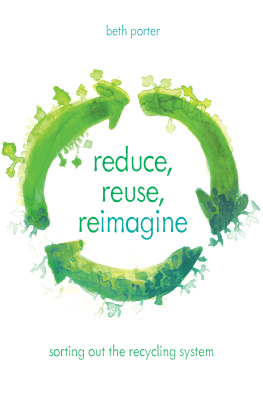Contents


I would like to offer a massive thank you to Ecosurety. Without them the book would not be in your hands right now.
I have worked with Ecosurety for the past twelve years, latterly as CEO and currently as a non-executive director.
Started in 2003, Ecosurety has grown significantly and has worked with Mars, Nestl, Co-op and Morrisons, to name a few. Ecosurety helps these companies navigate the complex world of producer responsibility. It also creates and develops innovative sustainability programmes and campaigns, focusing on helping the public learn more about recycling and sustainability.
Ecosurety stands out in its industry for its transparent and ethical approach to business and is the only accredited B Corp in the environmental compliance space.
The experience gathered from working with Ecosurety has shaped a lot of this book and I am extremely grateful for their support over the years.
Thanks team!
Thanks to Margaret, Iain and Sam for checking
the book was not complete rubbish
and to Ellie for putting up with my rubbish.
Contents
Everything can be recycled.
Everything!
In the world of waste, there is a big difference between whether something can physically be recycled, and whether it actually is. It all comes down to the thing that dictates so many of our issues: money.
Chocolate wrappers, crisp packets, polystyrene they can all be recycled. Ive seen it happen. Ive watched a cat food pouch become oil ready to be made into new packaging. This surprises people, as you will often hear in the media that product X cannot be recycled. This needs to be adjusted by one word: product X cannot be recycled economically.
The economics of waste is fascinating. There are whole teams within companies whose job it is to assess how to send us, their consumers, products in the most economically efficient ways. Ecommerce businesses do not really want to send us small items in large boxes why waste the box? However, standardised packaging and posting is much more efficient than designing a different box for each product, and the environmental cost is nearly always a secondary consideration to efficiency.
However, the world has become a very different place in the last few years. Now, many companies have realised that efficiency should take a back seat to the environmental story they must tell. It feels different out there. More than ever before brands and retailers want to do the right thing.
Unfortunately, consumer emotion often moves faster than a supply chain can evolve, so shortcuts are taken, and positive PR sought, as the world shuns plastic and turns to alternatives without questioning the environmental impact of the new options. These knee-jerk reactions can cause more damage than the problems they seek to solve.
For me, this came to a head on 17 October 2018.
I scroll through BBC News most days with a cursory glance at headlines. On that day, a BBC article appeared on my feed which grabbed my attention. The headline read, Plastic pollution found on shipwrecks. I thought to myself, How could this happen? A modern invention on historical shipwrecks? Why is plastic everywhere? We need to get rid of it!
So, I clicked the link to the article. There was a picture, and sure enough, surrounding the waterlogged cannons of HMS Invincible in the Solent sat nine plastic bottles, roughly two litres in size. But wait surrounding the nine bottles were thirty-eight aluminium cans. THIRTY-EIGHT! And yet the headline did not say Packaging found on shipwreck or Mostly metal, some plastic found on shipwreck it referred exclusively to plastic. Fed up with this bias, I sat down to write a rubbish book, with the aim of explaining the nuances of the recycling world and debunking the myths. The result is the book currently in your hands.
The Rubbish Book was born out of my first-class ability to frustrate my friends by giving them advice on which bin to put things in and how to dispose of items properly. After teaching one of my friends about putting caps back on bottles before recycling, which then led to a lengthy conversation about other things he had not been getting right about recycling, he said, Someone should really write a book on this stuff. I think it was mainly in an effort to get me to stop talking. But I wrote the book anyway.
I have worked in the recycling space for over a decade and been the CEO of a leading environmental consultancy for the last five years. Over that time, I have learned so much about the world of waste and I have also learned we do not communicate things very well. Messaging to consumers about packaging and recycling is complicated and disjointed.
Heres an example. In order to share tips and tricks, I have recently joined Instagram, where I was alerted to just how many people who are anti-plastic have switched to buying toilet roll from online companies that do not use plastic packaging. However, these companies individually wrap virgin paper toilet rolls in paper and the largest manufacturers ship their rolls from China. As an alternative, leading supermarkets sell environmental branded toilet roll that is made from paper recycled in the UK but wrapped in a few grams of plastic, which can actually be recycled by taking it to large supermarkets (see ). The environmental impact of buying rolls individually wrapped in paper, compared to a multipack wrapped in plastic, is huge, and thats without even considering the journey from China that each package must undertake.
You see, the problem with plastic is actually a problem with packaging. And the problem with packaging is actually a problem with consumerism more broadly. For example, our desire to buy fresh products at any time of the year, with no consideration of seasonality, means fruit and vegetables have to be shipped around the world a journey they will only survive with packaging. So in order to really effect environmental change, we must question the way we buy and consume, rather than what something is wrapped in.
Consider the money in your pocket. In 2016, the UK began rolling out banknotes made of plastic (polypropylene, to be precise), yet I have never been fortunate enough to find a plastic banknote in the street, on the side of a road, or littering our beaches a stark contrast to widely discarded packaging. Why not? Money has a perceived value thats much higher than our packaging, yet its real material value is the same. It is interesting then that we hold packaging in such low regard. If we valued it the same as the money in our pocket, perhaps we would see less litter and more care.
I get it: plastic feels wrong. It is hard to change that perception, and in lots of ways it is indeed wrong. The bad management of waste plastic leading to plastic in the ocean, the idea that we can export away our waste problems wrong! But I would add that most packaging has issues, whatever it is made of. Why does a toothpaste tube come in a cardboard box? Why is a paper straw acceptable when it is not needed? We should challenge our societal aims and focus on what is important, reducing all packaging and reusing wherever possible.
Having said all this, change takes time, and both packaging and recycling have an important place in society. Therefore, it is essential we understand what can be recycled economically and what cannot, and where possible ensure we avoid packaging that cannot be collected or recycled. We must also demand of our governments that low-quality materials, which have little economic value in the recycling chain, should not be sent for recycling abroad, where they are rarely recycled or well managed.

